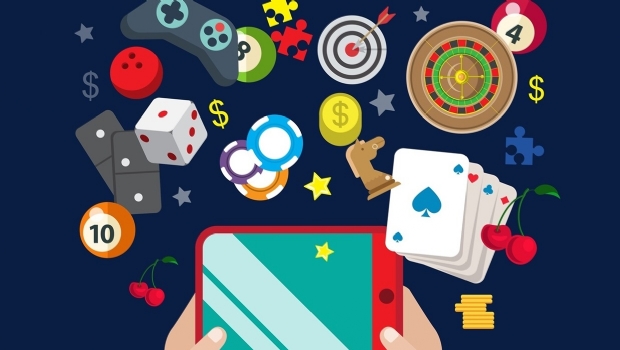
Gamification is a powerful strategy in various sectors, and the growing iGaming industry is no exception. Incorporating gaming elements into sports betting and online casino sites can, for example, increase user engagement and retention, as well as being a differentiator in choosing a platform. In this article for GMB, inplaySoft analyzes the importance of the theme and provides examples of challenges and trends in the sector.
Importance of Gamification in iGaming
Increasing Engagement
Gamification can increase player engagement. Points, badges, rankings, challenges, among other playful elements, create an interactive environment to motivate users to engage more deeply. The experience becomes more attractive when they feel part of a game, which leads to longer stay times on the platforms.
Player Retention
Attracting new players is important, but retaining those who have already used a platform can be even more so. Gamification is a strategy to encourage users to return and stay loyal. Point systems that can be exchanged for bonuses or physical prizes, for example, help to build customer loyalty on a site.
Community Building
Through competitions and social events that promote interaction among players, gamification contributes to the formation of communities within iGaming platforms and increases the sense of belonging.
Enhancing User Experience
Gamification also helps to make user interfaces more intuitive and friendly. Tutorials, missions, and real-time feedback allow players to learn and make the most of the platform.
Skill Development
Moreover, gamification offers players the opportunity to develop skills. Strategy and logic games, for example, can enhance users' cognitive abilities. Tournaments and competitions, in turn, can teach the importance of discipline, planning, and decision-making under pressure.
Examples of Gamification in iGaming
Loyalty Programs
Loyalty programs are one of the main elements of gamification used by sports betting houses and online casinos. Platforms can, for example, offer points to players after each bet made. These points, in turn, can be exchanged for bonuses, free spins, or cash prizes. Systems like this not only motivate players to bet more but also reward them for their loyalty.
Challenges and Missions
Many platforms also propose daily challenges and missions to players. By completing them, users earn points or additional prizes. This strategy not only increases interaction but also encourages players to explore different aspects of the platform.
Competitions and Tournaments
Competitions not only attract players but also create a healthy competitive environment, where users strive to improve their skills and climb the rankings. Examples include poker tournaments, in which players compete for prizes.
Real-Time Feedback
iGaming platforms often use real-time feedback as a gamification tool. An example of this is the sending of notifications to celebrate players' achievements immediately after they reach new levels or complete a challenge. This form of validation is important to maintain engagement and encourage continued participation.
Personalization
Personalization can also be a form of gamification. By offering personalized game recommendations based on a user's betting history, the iGaming platform not only improves the user experience but also increases the chances of player conversion, as they will feel more connected to the platform.
Challenges
As we have seen above, gamification offers various benefits for players and betting houses. However, we cannot ignore the challenges related to this strategy.
One of the main risks of gamification is the potential development of gambling problems. The competitive and engaging nature of the games can lead some players to bet more than they should. It is essential, therefore, that all iGaming platforms, but especially those that offer gamification elements, adopt measures to identify and assist players at risk.
This can include betting limits, notifications about excessive gaming behavior, and access to psychological support. Being transparent about the risks associated with betting is crucial to promoting a healthy environment.
In addition, regulations related to iGaming differ from country to country and are constantly changing in some territories. Therefore, platforms need to ensure that their gamification practices comply with local and international laws.
Gamification Trends
As technologies evolve, the trend is that new opportunities will arise for gamification in iGaming. Augmented reality (AR) and virtual reality (VR), for example, promise to revolutionize the way players interact with platforms in the near future.
Artificial intelligence (AI), in turn, could be used to further personalize the experience of players, offering game recommendations based on individual behaviors and preferences. Moreover, the integration of gamification in live broadcasts and game streaming should increase interactivity among players.
Gamification at inplaySoft
inplaySoft is a software provider for iGaming platforms focused on player engagement and retention. Therefore, the company offers a complete gamification package. Among other elements, inplaySoft provides tournaments, rankings, and tables, so that its clients have access to a full arsenal of gamification.
Gamification is also a solution offered by the company to keep its Brazilian clients engaged and loyal. In Brazil, which changed its legislation regarding iGaming in 2023, bonuses are prohibited, which presents a challenge for platforms operating in the country.
However, with the gamification package from inplaySoft, it is possible to engage players in Brazil, which, being the seventh most populous country in the world, is a golden opportunity for the iGaming industry.
Source: inplaySoft









